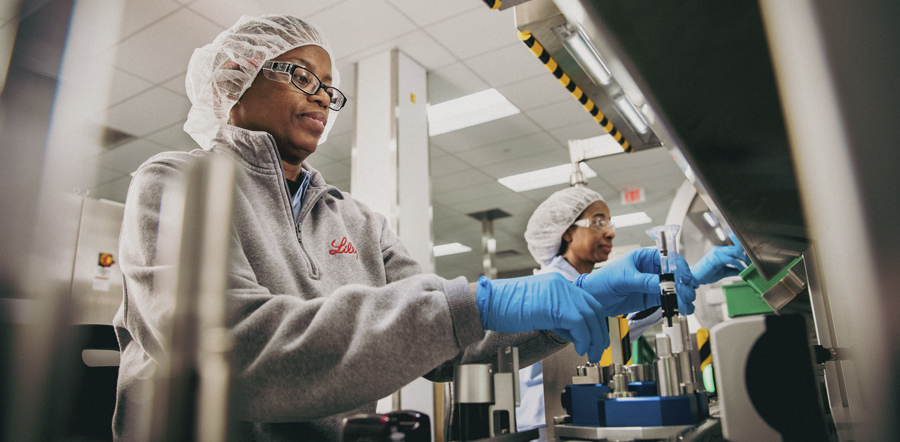Lilly Expands Big but Stays Green: A New Era In Mindful Manufacturing
Lilly boosts manufacturing with advanced tech and sustainability to meet rising GLP-1 demand.
Breaking News
Aug 30, 2024
Mrudula Kulkarni

With the skyrocketing demand for GLP-1s to treat diabetes
and obesity, Lilly is making unprecedented investments in manufacturing and
expanding its capabilities to support these treatments and its other
top-selling medicines. The company is significantly increasing its capacity to
produce active pharmaceutical ingredients (APIs) and enhancing its global
network for parenteral products and device manufacturing. Since 2020, Lilly has
invested over $18 billion in building, upgrading, and acquiring facilities across
the U.S. and Europe.
To meet the growing demand, the company is leveraging
cutting-edge technology, including robotics, highly automated manufacturing
processes, and greater digitalization. As Lilly scales up its production to
meet this record demand, the company is also carefully considering its use of
resources and energy. A Lilly spokesperson highlights how the company’s
manufacturing processes and collaborations with contract manufacturing
organizations (CMOs) are designed to minimize environmental impact while
supporting its ambitious expansion efforts.
Lilly spokesperson said in a statement, “We are utilizing
advanced technologies such as machine learning, AI and a variety of automated
robotics and systems in our manufacturing processes to help increase our speed
and efficiency. For example, our Research Triangle Park (RTP) site in North
Carolina is one of Lilly’s most advanced manufacturing facilities to date,
equipped with automation integrated into nearly every facet of the supply
chain. This includes automated guided vehicles, automated warehousing, robotics,
and highly automated production equipment, to accelerate the production of
medicines at RTP. This level of automation requires extensive technical
expertise and training across the production cycle, including operators,
technicians, engineers and scientists. Similar to our RTP facility, Lilly’s new
facility in Concord, North Carolina, will have high-speed manufacturing lines
capable of significantly increasing our production.”
The spokesperson further added, “Lilly has a responsibility
to reduce our environmental footprint and serve our local communities. That
said, we are being thoughtful in how we use our world’s valuable resources and
energy when making our products. For example, we ensure appropriate controls
are in place with Lilly contract manufacturers to prevent the discharge of
pharmaceuticals in wastewater above applicable PNEC-based limits for
Pharmaceuticals in the Environment. Through the end of 2023, we completed assessments
of 100% of our contract manufacturers. All contract manufacturers were found to
have appropriate controls in place to meet the established PNEC-based limits.”
The spokesperson concluded by saying, “We have also taken
steps to educate and engage our suppliers directly on Health, Safety and
Environmental (HSE) issues to help them build expertise around these topics.
This includes our ongoing work as part of the Pharmaceutical
Supply Chain Initiative (PSCI), a non-profit business membership organization
founded in 2006, which counts Lilly as one of its inaugural members. In 2023,
Lilly HSE professionals led the Industrial Hygiene PSCI supplier capability
building team and served on several of PSCI’s supplier capability building
teams. We’re making ambitious efforts to meet the current and future demand and
building new facilities at record speed – going from breaking ground to
producing medicine in just two years, three years faster than the industry
average. Also, all our manufacturing sites are running 24/7 operations and our
large and growing manufacturing workforce is committed to this capacity
expansion.”
